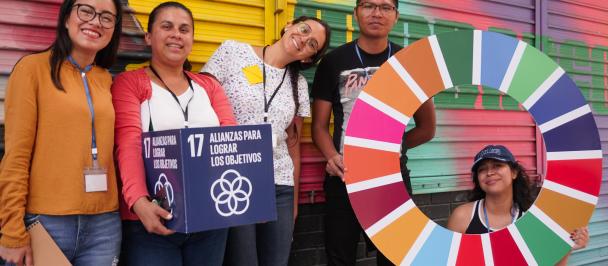“Climate change is the defining issue of our time – and we are at a defining moment…this is the absolute priority.” UN Secretary General
Developing countries are not waiting for international finance to enable their climate response. They have already begun to prioritise billions of dollars of their own scarce domestic resources for climate action. It is difficult to articulate how much is being spent on climate through national budgets as climate change impacts so many different ministries’ spending across central and local government. But ministries of finance are rising to this challenge by establishing Climate Budget Tagging systems to monitor and track climate-related expenditures in their public budget systems. Whilst the proportion of budgets classified as ‘aligned with climate objectives’ varies, it averages in the range of five to ten percent of a country’s budget – often amounting to billions of dollars. State bureaus in charge of managing budget formulation and execution are increasingly vexed by climate change as a systemic issue impacting the effectiveness and efficiency of their spending.
Take the Pacific Islands, whose budgets are already pressured by limited fiscal opportunity and regularly depleted by disasters: They are not waiting for international finance to fill their fiscal gaps but, with UNDP’s help, have integrated disaster risk screening tools into their budget appraisal process and ensured that national budgets are directly accountable to parliament for their impacts on climate change adaption. In Pakistan, sector ministries such as the Water Ministry have integrated climate change into their medium term budgetary frameworks, aligning over US$400m of their ministry budget with climate change objectives.
Countries big and small are taking action, but of course, domestic public funds will never be enough. For developing countries, international funds will also be critical, and donors will have to live up to their commitments. Where budget reforms are now in place, donor funds can achieve significant leverage and impact flowing through government’s own systems. Ultimately, it is only if private sector investment is leveraged and innovative financing arrangements are put in place across public and private sectors, that adequate finance will be mobilized.
UNDP is increasingly supporting public-private collaborations to finance a response to climate change. For example, we have been supporting the Ministry of Finance in Indonesia to issue a green Islamic bond – the Green Sukuk - mobilizing US$1.25 billion. We are also supporting India, Vietnam and Mongolia to mobilise Green Climate Fund resources in ways that will crowd in private finance for adaptation into their countries.
Our ability to mobilise all of society behind a response to climate change is probably the most essential cog in this wheel. We will need to see a significant broadening of the coalition for reform – we cannot leave the push for a climate compatible future to ministries of environment and climate change alone. As the UNFCCC COP24 begins its meeting this week, let’s all play our part in identifying opportunities to mobilise resources and harness them for a more sustainable and prosperous future. In particular, let’s work to ensure more ministries of finance and more private sector institutions join in on these efforts.


 Locations
Locations



